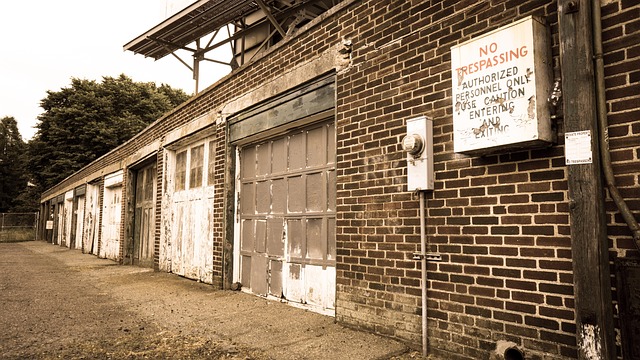In Ohio’s harsh climate, salt damage can significantly impact garage floors. This article explores how epoxy garage floor coatings offer a robust solution. We’ll delve into understanding salt damage, the protective benefits of epoxy, and choosing the right salt-resistant formula. Learn about expert application techniques for optimal results and discover the added advantages beyond salt resistance. Maintain your epoxy coating with our practical tips.
- Understanding Salt Damage on Garage Floors
- The Role of Epoxy Coatings in Protection
- Choosing the Right Salt Resistance Formula
- Application Techniques for Optimal Results
- Benefits Beyond Salt Resistance
- Maintaining Your Epoxy Garage Floor Coating
Understanding Salt Damage on Garage Floors
Salt damage on garage floors is a common issue, particularly in regions with harsh winters where salt is frequently spread on roads to melt ice and snow. Over time, this salt can infiltrate the concrete, leading to several problems, including corrosion, weakening of the concrete structure, and the development of unsightly etch marks. These issues not only compromise the aesthetics of your garage floor but also its durability and safety.
The presence of salt in the environment increases the humidity levels within your garage, creating a conducive environment for mold and mildew growth. This can be a significant concern, especially for vehicles parked inside, as it may lead to interior damage and unpleasant odors. To counter these issues, investing in durable epoxy garage floor coatings is essential. These coatings not only provide a slip-resistant surface, crucial for safe parking and maneuvering, but also offer decorative garage floor solutions that enhance the overall look of your space. Moreover, concrete garage floor resurfacing with epoxy can effectively mitigate salt damage, ensuring your floor remains robust, visually appealing, and free from unwanted moisture-related problems.
The Role of Epoxy Coatings in Protection
Epoxy garage floor coatings play a pivotal role in safeguarding your concrete surface from various forms of damage, especially salt-related corrosion that can be particularly destructive in Ohio’s unpredictable weather conditions. These specialized coatings create an impenetrable barrier, preventing salt and moisture from seeping into the concrete, which is a common cause of deterioration and structural issues over time. By acting as a protective layer, epoxy coatings ensure that your garage floor remains in pristine condition, enhancing its lifespan significantly.
Moreover, when it comes to functionality, waterproof garage floor coatings offer exceptional slip-resistant properties, making them ideal for areas prone to moisture accumulation or icy conditions during winter. Concrete garage floor resurfacing with epoxy not only restores the surface but also improves safety by providing better traction. This is particularly beneficial for homeowners and businesses in Ohio, ensuring a secure environment regardless of seasonal weather changes.
Choosing the Right Salt Resistance Formula
When considering an epoxy garage floor coating for areas prone to salt damage, it’s paramount to select a formula specifically designed for such resistance. Not all epoxy coatings are created equal; some offer enhanced protection against de-icing salts and chemicals commonly used in winter maintenance. Look for products marketed as “salt resistant” or “waterproof garage floor coatings” to ensure durability. These advanced formulas incorporate special additives that bond strongly with concrete, preventing salt crystals from penetrating the surface and causing damage over time.
Additionally, consider the application method. Professional installation of a concrete garage floor resurfacing can optimize the coating’s adhesion and overall effectiveness. Experts can assess your specific needs and choose the most suitable epoxy system, ensuring not only superior salt resistance but also enhanced slip-resistance for safer, dry walking surfaces—a key benefit for preventing accidents in busy garages.
Application Techniques for Optimal Results
For optimal results with salt damage-resistant epoxy garage coatings in Ohio, proper application techniques are paramount. This starts with thorough concrete garage floor preparation, ensuring the surface is clean, dry, and free from any contaminants. Next, a primer or undercoat should be applied to enhance adhesion and create a strong bond between the concrete and the epoxy. The chosen epoxy garage floor coating—whether it’s a single-part or two-part formula—should then be mixed and applied evenly using specialized equipment like rollers or brushes. Even application is crucial for preventing visible streaks or uneven finishes.
Once the first coat is dry, additional coats can be added depending on the desired finish and protection level. For slip-resistant garage flooring, sandblasting between coats might be recommended to introduce texture, enhancing traction. After the final coat has cured completely, a waterproof garage floor coating can be applied as an extra layer of defense against moisture, chemicals, and, of course, salt damage. Remember, proper application and timely curing are key to achieving a durable, long-lasting epoxy garage floor that offers superior protection for years to come.
Benefits Beyond Salt Resistance
When you choose an epoxy garage floor coating for its salt damage resistance, it’s not just about keeping your surface intact. These advanced formulations offer a multitude of benefits that elevate your garage from a simple storage space to a functional and attractive area. Beyond salt resistance, epoxy floors provide unparalleled durability, easily withstanding heavy traffic and extreme weather conditions. This makes them ideal for high-wear areas like workshops or commercial garages.
Furthermore, epoxy coatings boast exceptional chemical resistance, making them suitable for spaces where fluids or other corrosive substances are handled. They also offer a smooth, easy-to-clean surface that repels stains and dirt, keeping your garage looking pristine. For those seeking both functionality and aesthetics, decorative garage floor solutions incorporating epoxy technology provide a stunning finish without compromising performance.
Maintaining Your Epoxy Garage Floor Coating
Maintaining your epoxy garage floor coating is essential to ensure its longevity and protect your investment. Regular cleaning is crucial; use a mild detergent and warm water to remove any dirt, stains, or oil spills. Avoid harsh chemicals as they can damage the coating. A simple sweeping or mopping routine will keep the surface pristine.
Additionally, inspect your epoxy garage floor for any signs of wear or damage, such as cracks or chips. Repairs should be addressed promptly to prevent further deterioration. For concrete garage floor resurfacing, consider professional services that offer chemical-resistant garage epoxy solutions, enhancing both durability and slip resistance, which is particularly beneficial in areas prone to moisture or oil leaks.
Salt damage can be a significant concern for garage floors, especially in snowy regions. However, with the right epoxy garage floor coating, homeowners in Ohio can protect their investments and enjoy long-lasting results. By understanding salt’s impact, selecting the appropriate resistance formula, and employing expert application techniques, you can transform your garage into a durable, attractive space. Beyond salt resistance, these coatings offer enhanced durability, easy maintenance, and a modern finish that complements any home. With proper care, your epoxy garage floor will remain in excellent condition for years to come.




